ESG Classifications
In order to help you make effective decisions both:
- when browsing the Hampr marketplace, and
- when using Hampr's reporting and insights tools to understand your spend;
Hampr's team has curated a set of ESG Classifications categories and surface this information throughout the platform.
What are Hampr's ESG Classifications?
Hampr classifies Partners (and some Items) using the following 7 categories:
- Social Impact - Recognises businesses with a positive impact on the people, institutions and communities in which they operate.
- Governance - recognises businesses that promote the health & wellbeing of stakeholders by adopting mature systems, practices, controls and procedures. Governance strengthens effective decision making to support initiatives aimed at reducing bullying, discrimination and sexual harassment; improving workplace conditions via ensuring appropriate ventilation, break areas, natural lighting, ergonomic furniture; and reducing conflicts of interest or unethical behavior among stakeholders.
- Environmental - recognises businesses that utilise policies to curb (or improve) the sustainable footprint of their business operations on the natural environment. Initiatives may range from those aimed at carbon reduction/neutrality to recycling/waste-management.
- Indigenous - recognises businesses with at least 51% of the people who hold voting shares are of to be Aboriginal or Torres Strait Islanders descent.

- Women Owned - recognises businesses with at least 51% ownership by one or several women.
- Supply Nation - recognises Aboriginal and Torres Strait Islander business that have been certified by Supply Nation (an Australian Indiginous Business Directory).
- Diversity, Equity and Inclusion - recognises businesses that promote equal opportunity policies or initiatives that support minorities or marginalised groups, and may include policies aimed at addressing systemic pay gaps.
Why does Hampr identify and report ESG Classifications?
Hampr believes that supply-chain transparency initiatives create a bridge between users and the partners they choose to do business with. These initiatives empower users to reinforce values that are important to them, and establish incentive mechanisms for businesses to consider these values. Hampr is a strong believer that eliminating information asymmetry barriers empower both users and merchant partners.
How does Hampr identify if a Partner should be classified?
Hampr has developed an internal framework for identifying if a classification is suitable for a particular Partner. This framework takes a number of factors into account, to determine classification eligibility.
Hampr's framework is based on a Decision Matrix Analysis (a quantitative decision-making tool that helps evaluate and prioritise based on a set of predefined criteria); each question is weighed differently with a set of corresponding points, based on customers' ethics and social business requirements.
Hampr evaluates Partners against this framework based on information supplied by the Partner, and if a Partner has achieved a particular threshold of points within a particular ESG Classification category, they are deemed to be suitable/eligible for that particular category.
How does Hampr identify if an Item should be tagged appropriately?
In some cases, a Hampr partner may be a wholesaler that offers a range of branded products (this is especially common in the Pantry area of the platform). For example, large chain supermarkets may offer products from manufacturers such as:
- Smith's Original Chips - produced by The Smith's Snackfood Company
- Thankyou Hand Wash - produced by Thankyou (an Australian social enterprise)
In this instance we would classify the Hand Wash item as "Social Enterprise" (even if the classification didn't apply to the wholesaler). We believe this approach more accurately reflects the intention of users when interpreting ESG Classification information.
Have additional questions?
Please reach out to Hampr's team, we'd love to assist your business in achieving its ESG objectives and are ever-committed to adjusting out platform to better support your effective decision making needs.